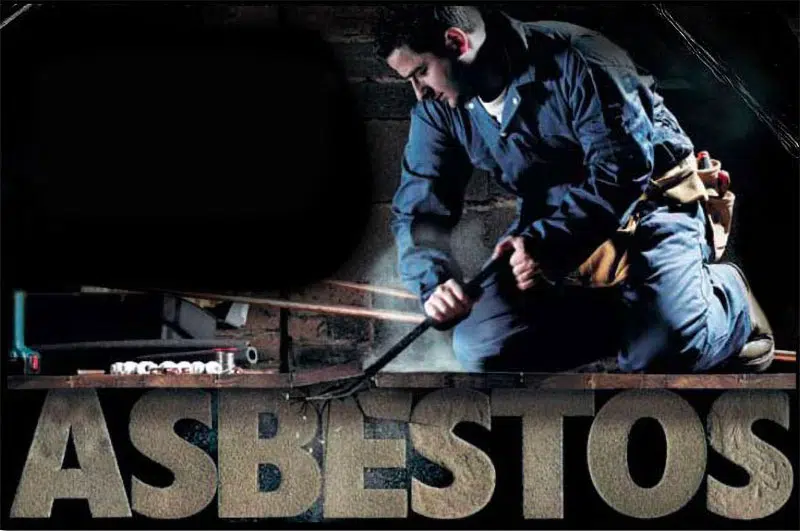Can You Remove Asbestos Yourself?
The chances are that you will be well aware of the notoriety of asbestos as a material that can cause serious harm to human health. After all, the health risks of this once widely used construction material were already well-recognised long before all forms of it were finally banned in the UK in 1999.
Even into the 2020s, the number of deaths in the UK due to asbestos-related disease continues to hover at 5,000 a year. This is largely a consequence of the tendency for asbestos-related conditions to only develop potentially decades after the sufferer’s first exposure to the substance, as well as the fact that people can still end up accidentally breathing in or ingesting the material today.

In the knowledge of all this, you might have become aware that asbestos is present on premises for which you are responsible. This, in turn, might have led you to consider whether it would be that much of a risk to attempt to remove it yourself – especially if you are concerned about how expensive it would be to arrange for a licensed professional to do the job.
Who can remove asbestos?
Before we go any further, the short answer to the question of whether you should attempt to remove asbestos yourself, will almost certainly be “no” – and there are both health-related and legal reasons for this.
As we will explain in further detail below, there are various rules and regulations governing how asbestos found on any given premises should be managed. Included among those are strict legal requirements with regard to who is allowed to remove asbestos, and what removal procedures they must follow.
But to sum it up in a sentence or two, an untrained amateur must never attempt to remove asbestos themselves. Someone removing asbestos from a property should hold a licence from the Health and Safety Executive (HSE) in the UK – or at the very least, be fully trained in the safe removal of ‘lower-risk’ asbestos-containing materials (ACMs), if these are the materials they will be removing.
What are the rules and regulations surrounding asbestos removal?
A good first place to look for clarity on the legal situation with regard to asbestos management and removal in the UK, is the Control of Asbestos Regulations 2012 (often referred to as ‘CAR 2012’).
As the name indicates, CAR 2012 came into force on 6th April 2012. It represented an update of previous asbestos regulations in the UK, reflecting the view of the European Commission that the UK had not fully implemented an EU directive on asbestos exposure. In practice, CAR 2012 was largely unchanged from the UK’s previous regulations on asbestos management.
Of particular relevance to those who may be considering trying to remove asbestos from a property themselves, the regulations set out that in the majority of cases, it is necessary for work with asbestos to be carried out by a licensed contractor.
Included in this are most asbestos removal tasks, as well as all work with sprayed asbestos coatings and asbestos lagging, and most work where asbestos insulation and/or asbestos insulating board (AIB) are involved. Even if someone is carrying out work with asbestos for which a licence isn’t required, there must still be effective controls in place – again, not something that an untrained amateur would be able to ensure.
What are the dangers of amateur asbestos removal?
Again, just in case it needs to be emphasised, asbestos can be extremely harmful to human health. This basic principle applies to all the six types of this material.
One of the reasons for the sheer danger that asbestos poses, is the fact that it can be easily disturbed by humans, including even the most well-meaning and “careful” amateurs. If this does happen, asbestos fibres can be released into the air, thereby potentially risking the health of anyone else who enters the area of contamination, or who touches the clothing of someone who has come into contact with the substance.
So, an amateur asbestos removal job might not be solely a risk to your own health – it could also imperil the health of anyone you know or work with. And with such conditions as mesothelioma, asbestosis, and lung cancer all known to develop in many people who have inhaled or ingested asbestos, the untrained removal of this material really isn’t a risk worth taking.
What can you do if you suspect asbestos is present on your premises?
In the event that you do identify material in your property that you suspect to be asbestos, or an asbestos survey has identified that it is present, it is crucial to seek out the professional advice and support that will help ensure you make all the right decisions in the management of this material.
Call the Oracle Solutions team today and we will be able to give you the advice that you need, and to present you with a fast and free quote for whatever specialised asbestos-related work you might require.
Working together, we can guide you towards correct and proper asbestos management, and steer you away from any irresponsible or unsafe decisions that you might regret.
